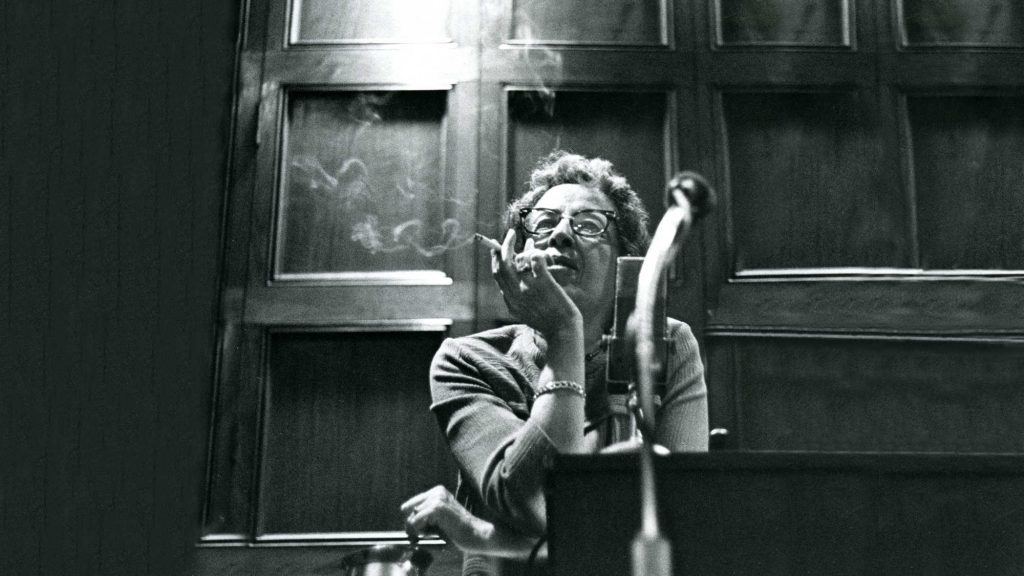Radicalising democracy: How Hannah Arendt’s legacy endures in Barcelona

Written by Hettie O’Brien. Excerpt from Verso’s blog
In 1963, having fled Germany for New York, political philosopher Hannah Arendt wrote that: “no one could be called either happy or free without participating, and having a share, in public power”. Had she been alive to witness Brexit, the ascendancy of Donald Trump, and the election of Jair Bolsonaro, Arendt would likely have lamented liberals’ ongoing faith in representative democracy.
Public trust in political institutions is faltering. While the right has rallied behind fascistic strongmen, progressives are turning instead towards projects that decentralise political power. In Barcelona, a quiet revolution is underway. Elected platform Barcelona en Comú is the inaugural project in a growing movement of “fearless cities” intent on radicalising democracy by involving as many people as possible. Elected governments in Madrid, Grenoble, Padua and Valencia reflect Arendt’s contention that true democracy involves locals debating and deciding on political matters.
Arendt’s analysis of modern democracy starts with the French and American revolutions. The spirit that animated these revolutions was, to Arendt’s dismay, lost in the proceeding centuries. Modern citizens were neutered of their political freedoms; where they gained civil liberties and elected parties, they conceded the power to actively participate in political governance. As Arendt wrote, “political freedom, generally speaking, means the right to be a participator in government or it means nothing.” It was insufficient, she thought, to merely pursue a Hobbesian blueprint where people transfer their powers of self-governance to a sovereign institution that acts on their behalf.
Her disillusion with representative democracy was born from personal experience. Arendt, a Jew who had witnessed the rise of National Socialism in Germany, identified how public distrust in a system of representative parties created fertile ground for a “mob mentality” that scapegoated outsiders. Rather than moderating extremism or sheltering political minorities, Arendt saw representative democracy as part of the problem. It restricted citizens’ interests to the private domain, offering no forum for hearing others’ opinions or debating ideas in public. In a parliamentary democracy, the only arena of political expression is the ballot box – a blunted implement that can be captured by the tyranny of majority opinion.
To answer these shortcomings, Arendt advanced her model of council democracy. Her idea was simple: local people would meet in assemblies to discuss political matters and choose individuals to represent their interests in councils higher up.
These ideas were inspired by Athenian democracy, where citizens debated politics in the public realm of the polis – the city-state. In Athens this was the place for political matters, while oikos – the home – was the private domain of the family, women and slaves. “The only indispensable material factor in the generation of power is the living together of people”, Arendt remarked in her 1958 book The Human Condition, and the city-state is “paradigmatic for all Western political organisation”.
Arendt had few real-life examples of council democracy. She pointed to the Paris Commune, the Russian Soviets of 1905 and 1917, and the spontaneous councils of the 1956 Hungarian revolution. Projects of this sort became her ideal type, forged in times when participation was a matter of life and death. As her critic Margaret Canovan noted, “extraordinary politics of this kind… [are] something exceptional and can never be a complete substitute for the more mundane politics of interests”. In revolution and war, politics gains an urgency that cannot be replicated. The challenge is guaranteeing that citizens of every stripe will participate in the everyday practice of democracy.
Had she been alive today, Arendt may have looked instead to Barcelona’s government and Europe’s fearless cities movement for examples of council democracy in practice. Barcelona en Comú’s horizontal model of neighbourhood groups with elected coordinators mirrors Arendt’s vision of tiered councils. The platform resists the terminology of party, instead emphasizing its openness to people without prior political expertise. Tools like the open-source software Decidim offer digital fora for crowdsourcing manifestos, while Bcomú asserts that democratic revolution is “impossible” without the active participation of citizens.
These contemporary projects suggest alternate answers to Arendt’s central concern: that representative democracy was always unstable and insufficient. Since she wrote On Revolution in 1963, Arendt’s theory of council democracy has been swept beneath the carpet. Scholars and journalists instead prefer to focus on the more internally consistent arc of her famous work on totalitarianism. Yet her argument for council democracy was prescient. Arendt’s enduring insight was not to proffer a perfect theory. Rather, it was to diagnose the problems that still afflict representative democracy today.

Bcomu “asserts” not “assets’ that democratic revolution is “impossible” without the active participation of citizens. Otherwise, great article.